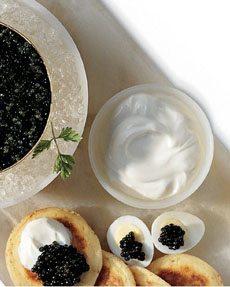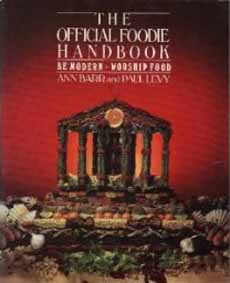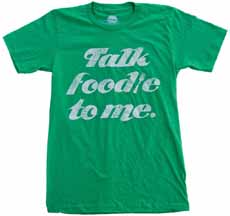FOOD 101: What’s A Foodie? A Gourmet? A Gourmand? An Epicure?
|
Are you an epicure, gastronome, gourmet, gourmand or glutton? The Old Foodie, of Brisbane, Queensland, Australia, takes on the discussion thusly: “In the lexicon of lip-smacking, an epicure is fastidious in his choice and enjoyment of food, just a soupçon more expert than a gastronome; a gourmet is a connoisseur of the exotic, taste buds attuned to the calibrations of deliciousness, who savors the masterly techniques of great chefs; a gourmand is a hearty bon vivant who enjoys food without truffles and flourishes; a glutton overindulges greedily, the word rooted in the Latin for ‘one who devours.’… “After eating, an epicure gives a thin smile of satisfaction; a gastronome, burping into his napkin, praises the food in a magazine; a gourmet, repressing his burp, criticizes the food in the same magazine; a gourmand belches happily and tells everybody where he ate; a glutton embraces the white porcelain altar, or, more plainly, he barfs.” Or not. THE NIBBLE’s take is a bit different. Here is our response to an inquiry from a reader: A foodie is a different psychographic than a gourmet. A gourmet is considered to be a person who has sophisticated tastes in food and wine. Foodies can be gourmets, but many foodies are not gourmets: They just prefer the best of the basics. By the same token, some gourmets are not foodies: They prefer their rarefied experiences, and are not excited, e.g., by the thought of searching Chinatown for the best scallion pancakes, or finding a truly amazing old-fashioned jelly doughnut. A foodie is not, then, someone who likes to eat out (almost everyone does) or photograph and post his/her food online (most people of a certain inclination do). It just makes you like everyone else in today’s culture. |
[2] Buy the shirt at Burger Junkies. |
|
|
THE HISTORY OF FOODIES The term “foodie” was coined in 1984 by authors Ann Barr and Paul Levy, in The Official Foodie Handbook, a tongue-in-cheek observation of passionate food lovers (including Levy) who would wax poetic about radicchio and have enraptured conversations about their food discoveries. The phenomenon was first recognized and described in the book by the duo, a magazine editor (Barr) and American-born journalist (Levy), both based in London. |
||

[3] Caviar is known as fancy fare for a connoisseur or gourmet. A foodie wants the best, but it can just as easily be the best jelly doughnut (photo of caviar and crème fraîche © Kendall Farms).
|
RELATED TERMS A simplistic example might be the difference between the enjoyment of a fine Brie, appreciated by a large number of people, and an Epoisses, which is much more demanding of the nose and taste buds (and can be thrilling or off-putting, depending on which side of the line you stand). Epicurus was an Athenian philosopher (341 B.C.E. to 270 B.C.E.) who taught that pleasure is the highest good. Thus, epicureanism is touched with sensuous enjoyment of the food (think oohs and aahs). A connoisseur (from the French connaître meaning “to be acquainted with” or “to know something”) is a person who has a great deal of knowledge about the a topic, in this case food and drink; and is an expert judge in matters of taste. We think of of gourmet as a connoisseur, while a gourmand is a discriminating glutton. Lastly, there’s the… |
|
|
Where would you place yourself on this list? Personally, we’re a hybrid: an epicurean-foodie-gourmand. > Check out our 100 food glossaries, created for foodies.
|
||




